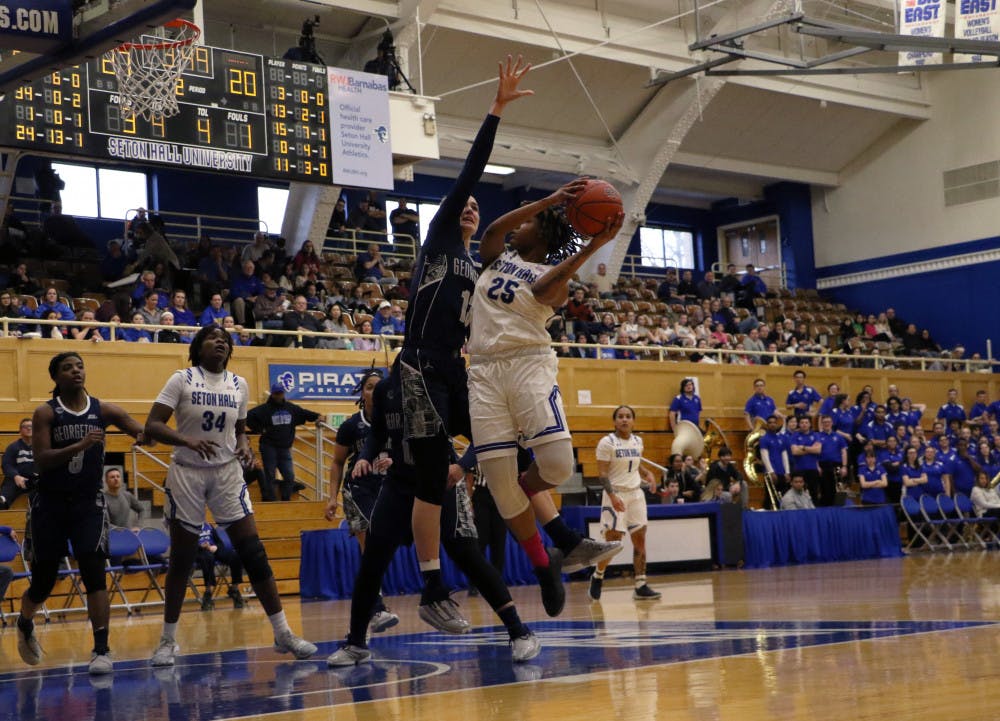Scott Chesney was just 15 years old in 1985 when he woke up in his Verona, N.J. home, unable to move his toes.
As the numbness only got worse and the days wore on, doctors finally told Chesney he was suffering from Arteriovenous Malformation, a congenital disorder of blood vessels in the brain which causes the human spine to have a stroke.
Chesney was born with the condition. He could have gone his entire life without ever feeling the results of it. However at age 15, he was forced to bear the burden of paralysis. Once a high school football player with dreams of playing at the University of Oklahoma, Chesney would now have to learn a new way of living: in a wheelchair.
"I told myself, as long as my heart is still beating and my mind is still working, anything is possible," said Chesney, who graduated from Seton Hall University in 1992. "I believe it's about courage. You have to strive for that belief that anything is possible."
It's become a motto that Chesney lives by each day, to believe anything is possible. And it's something that has gotten him through the toughest of times, whether it was losing his father as a 24-year-old or when doctors told him he would never father his own child, a prognosis he proved wrong when his two children were born just a few years later.
Chesney has looked opposition in the face, time and time again, and pushed forward.
Back in November, before the Seton Hall men's basketball team was set to kick off its season against St. Francis (NY), head coach Kevin Willard called Chesney. Willard wanted him to come speak to his young and impressionable team before the opening game.
"I talked with them about adversity," Chesney said. "We talked about strong team leadership and coming together, working as a team."
Chesney's speech seemed to work. The Pirates began the season with a 15-2 record, their best start in 20 years.
It isn't difficult to see the drastic changes happening with Seton Hall's basketball team these days and much of the credit goes to Willard, who took over for Bobby Gonzalez following the 2009-10 season.
Willard has done much more than fix the on-court basketball product in the almost two full years he's been at the helm. He's contributed to a vital culture change, a change of heart and attitude that Chesney said makes all the difference.
"Willard connects," Chesney said. "Whether it's a parent to their child or a teacher to their student, it's about connecting. He's done this with his guys."
Herb Pope, one of Willard's three seniors, nearly died two years ago due to an anomalous coronary artery, a defect he was also born with. Chesney doesn't just empathize with Pope. He feels Pope's pain.
"I shared such a nice experience with him," Chesney said, reminiscing about his first meeting with Pope. "There is something inside all of us, to make a shift or a change. You're humble and you don't take many things for granted. It doesn't happen to everyone but Herb Pope is certainly one of those people it does happen to. His presence alone is so important to the team."
Chesney said he calls Pope a "gentle giant," and admires the work he has done to get back into shape after his medical ordeal, something that isn't easy for everyone.
As for Willard, Chesney believes there is more than meets the eye. In the media guide, he may be listed as the head coach, but to Chesney, his role is deeper and more defined.
"Coach Willard is three things to this team," Chesney said. "He's a coach. He's a father. And he's a brother."
As a coach, Willard has a clear role, to recruit players and teach them the game of basketball, which the public is able to keep tabs on during games.
The caring and compassionate stories told about Willard, as both a father and a brother, over the last two years are behind the scenes, whether it's Pope acknowledging that Willard helped him get through rough times in his life or senior Jordan Theodore admitting that Willard occasionally likes to play video games with him.
"I'm still looking for flaws in Willard," Chesney said. "But I haven't found one yet."
The relationship between Chesney and Willard has grown over the course of the season. Chesney's words are not just spoken at this point, they are lived every day by Willard and his players. They understand how to coexist, both on and off the basketball court.
"Scott reminds all of us of what is possible when you play for each other and you play for someone other than yourself," Willard said. "It's the way he looks at life. He always finds the bright side and the positives."
While Willard's players take Chesney's words to heart, Chesney said it is he who is blessed for just being able to share his life with them.
"For all that I've given them, they've given me even more," Chesney said. "As they grow and mature, it's not about individual stuff. It's about winning as a team. And it's awesome."
John Lopiano can be reached at lopianja@shu.edu or on his Twitter account: @johnlopiano





